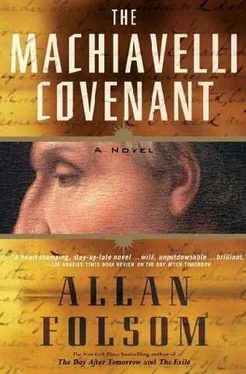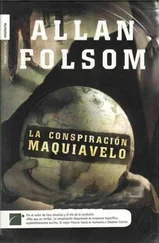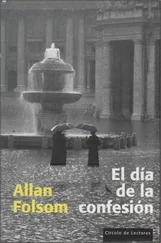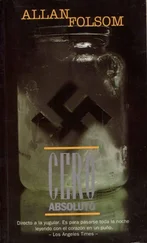Committee on Small Business
Committee on Budget
Committee on Appropriations
Committee on Homeland Security
Committee on Government Reform
House Permanent Select Committee on Intelligence
Within those were a number of subcommittees Parsons had also served on. One in particular caught Marten's eye, a subcommittee he was a member of at the time of his death.
Subcommittee on Intelligence and Counterterrorism
Mike and his son had died on Friday, March 10. The subcommittee's last scheduled meeting had been at 2 P.M. on Tuesday, March 7. Its subject had been "Progress in Consolidating Terrorist Watch Lists" and had been held at the Rayburn House Office Building. Listed were the names of its members. Curiously, as opposed to other congressional committee meetings, this one gave no further information, such as lists of witnesses who were to appear before the committee. It was simply blank. Marten tried several different government Web sites and came up with no more information than he had on Parsons's home page. He was certain there was an answer as to why and blamed it on himself and his inability to understand and navigate the workings of the government Web. Still, the proximity to the date of Parsons's death and the fact that there was seemingly no information available about the meeting troubled him. He wanted to find out more, but he didn't know how.
Richard Tyler, Caroline's lawyer, might have helped if someone in his office hadn't already stepped in and shut down Marten's access to the Parsons' personal information. It meant he would get no help there, and if he tried his attempt would be looked on with suspicion or even worse, especially if that same someone wanted his investigation completely stonewalled. If he pushed it he might very well risk physical danger from an unknown source or another visit from the police. Neither of which he wanted.
There was a time element too. Fitzsimmons and Justice, his employer in England, had very graciously given him time off to come to the states to tend to Caroline's situation, but at the same time he was intimately involved in the design of a large landscape project called "The Banfield Job" for Ronaldo Banfield, a star soccer player for Manchester United, at Banfield's country estate northwest of the city. The project was already behind schedule and needed to be completed by the end of May so that the actual work-the ordering of materials, the grading, the installation of irrigation systems and finally the planting-could begin. It meant that whatever he had to do here in Washington had to be undertaken and completed quickly.
Marten got up, thinking that if he went to the Capitol building he might begin to find some answers in the archives there. He was reaching for the phone to call the front desk for directions when he saw a copy of The Washington Post on his bedside table and remembered that several years earlier his close friend Dan Ford had worked for the Los Angeles Times Washington bureau-before he was transferred to Paris and subsequently murdered by the infamous Raymond Oliver Thorne. While in Washington Ford had become friends with a number of journalists from other papers. There had been one he'd come to know well but whose name Marten didn't recall. What he did remember was that he'd been a political writer for The Washington Post . Whether he was still there Marten didn't know but he thought that if he scanned the paper's bylines he just might see a name he would recognize.
It didn't take long. The name was right there on page one, a byline to a story about President Harris's trip to Europe: "President on Rough Road Overseas." The writer was Peter Fadden.
"Peter Fadden." The voice on the other end of the line was abrupt and raspy like leather. Marten had expected to hear a younger man; Fadden sounded seventy or more but with the energy of someone who could beat a thirty-year-old to a pulp in an alley or match him drink for drink in any saloon in town. He also sounded like he had Washington in his blood, and had since the days of Eisenhower or maybe even before.
"My name is Nicholas Marten, Mr. Fadden. I was a close friend of Dan Ford. I was also a friend of Caroline Parsons and her husband. I'd like to talk to you in person, if I might."
"When?" Fadden snapped back. There was no "why?" just the gruff "when?"
"As soon as possible. Today, now, this morning. I'm going to Caroline's memorial service this afternoon. Afterward would be okay too. I'll buy you a drink, dinner if you like."
Now it came. "Why?"
"I'm trying to find out what congressional business Mike Parsons was working on at the time of his death."
"Look it up. It's in the public record."
"Some of it is, some of it isn't. I need some help getting more information."
"Rent yourself a high school teacher."
"Mr. Fadden, there might be a story here for you. I'm not sure. I'll explain when we're alone. Please."
There was a long silence and Marten was afraid Fadden was going to brush him off. Then the gruff voice snapped at him.
"You said you were a friend of Dan Ford."
"Yes."
"Good friend?"
"His best friend. I was staying at his apartment in Paris when he was murdered."
Again there was a silence and then Fadden simply said-"Okay."
• AIR FORCE ONE, ALOFT OVER SOUTHERN GERMANY. 2:15 P.M.
The television interview with chief CNN European correspondent Gabriella Roche had long been planned and President Harris sat with her for the first thirty minutes of the flight from Berlin to Rome. The flight had been delayed for thirty-seven minutes because of what Berlin air controllers called heavy traffic at Berlin's Tegel Airport but what Jake Lowe had quietly told President Harris was really nothing more than German chancellor Anna Bohlen's way of "busting your balls a little more. Letting you know her true feelings."
"I know her damn feelings, Jake, but we need her," Harris had said, "so I don't know what we can do about it but ignore it."
"Mr. President," Lowe responded quickly, "what if we needed her right now?"
"What do you mean, 'right now'?"
Lowe started to reply but then his ever-mindful-of-schedule chief of staff, Tom Curran, interrupted, telling him it was time to do the CNN/Gabriella Roche interview.
A half hour later the interview was over. Harris joked lightly with Roche and her camera crew then thanked them and went directly to his executive suite, where Jake Lowe was waiting. With him, in shirtsleeves, was the towering six-foot four-inch Dr. James Marshall, his national security adviser, who had flown into Berlin from Washington and joined them as they boarded the plane.
Harris closed the door, then took off his jacket and looked to Lowe. "What did you mean when you said 'what if we needed Chancellor Bohlen right now'?" He spoke as if their brief exchange had just happened and there had not been a television interview in between.
"I'll let Dr. Marshall tell you."
Marshall sat down across from the president. "These are some of the most disturbing times we've ever encountered in our history, maybe even more worrying than at the height of the Cold War. I've been increasingly concerned about our ability to act quickly and decisively in a major emergency."
"I'm not sure I follow you," Harris said.
"Suppose something happened in the next hours and we had to take immediate and significant action somewhere in the world. We would need the French and German votes backing us in the UN right then, and you know now, from personal experience, it's highly unlikely we would get them.
"Let's play a what-if, Mr. President. For the moment forget about the present big-picture politics in the Middle East. Forget about Iraq, Israel, Palestine, Lebanon, even Iran. This is a deeper, simpler 'what-if.' Suppose al Qaeda or some other zealous group of jihadists, and there are hundreds of them, were to strike Saudi Arabia at midnight tonight. With enough fanatical force, by dawn they could wipe out the entire Saudi royal family. The government would collapse and the fundamentalist movement would explode over the entire region. Moderates would fall by the wayside and be slaughtered or join in the religious fervor that would rage like a wildfire. Within hours Arabia would fall, then Kuwait, then Iraq and Iran, Syria and probably Jordan. In less than thirty-six hours al Qaeda would control everything and the flow of oil to the West would stop, just like that. Then what?"
Читать дальше












